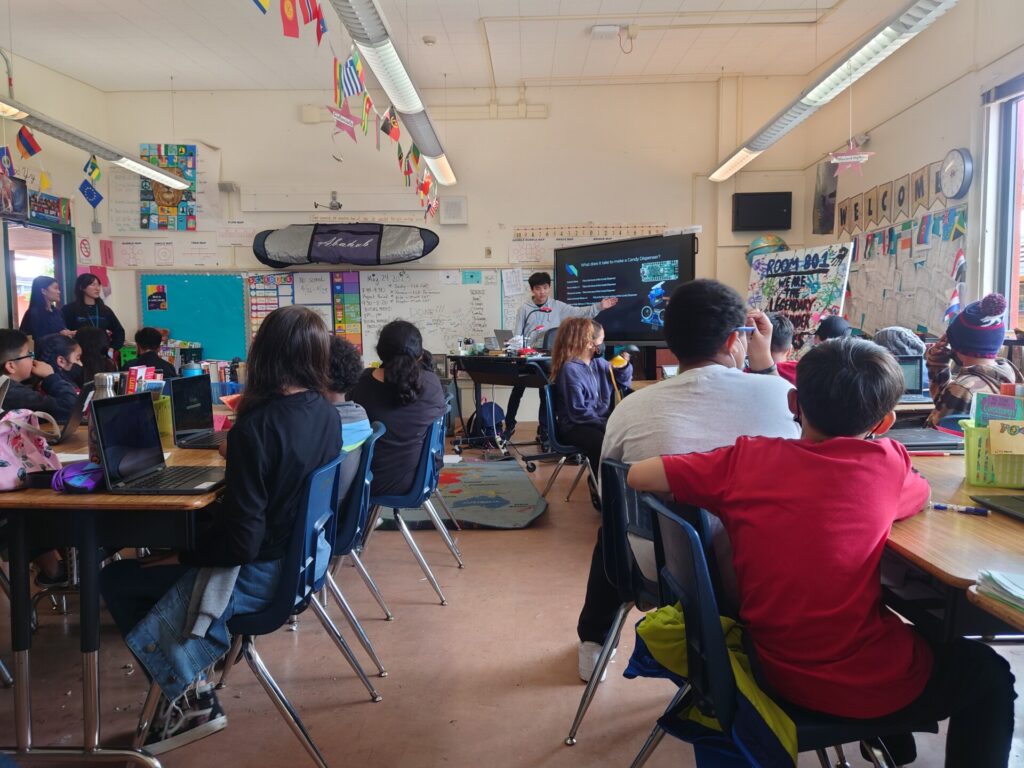Engineering Projects in Community Service (EPICS in IEEE), is a program that allows university students in engineering to use their talents for good in their communities worldwide. EPICS in IEEE provides grants for service learning projects in the areas of Access and Abilities, Environmental, Education and Outreach, and Human Services. EPICS in IEEE projects allow students to develop engineering solutions to impact their local community, while also gaining critical skills to help them in their future careers. EPICS in IEEE is proud to partner with IEEE HKN as one way for HKN students and chapters to fulfill their service requirements.
In 2023, EPICS in IEEE supplied a grant to the Kappa Psi Chapter at the University of California San Diego for an engineering project to improve their respective communities and fulfill their community service requirements. EPICS in IEEE partners with the IEEE Foundation and our projects are supported by donors. “EPICS is proud to Partner with HKN and support the students doing amazing work at their universities,” says Stephanie Gillespie, current chair of EPICS in IEEE “By providing EPICS project funding, we hope the chapters will be able to deploy successful projects to better their communities, while also engaging the students in their HKN chapters.”
Engineering Outreach in K-12 Schools: Kappa Psi
Access to education in engineering in K-12 schools is often reflective of one’s socioeconomic status. The Kappa Psi Chapter at the University of California, San Diego teamed up with San Diego Unified School District and took note of this issue. With the help of an EPICS in IEEE grant of $2,670.00, the HKN chapter sought to provide support to local residents in San Diego. Twenty-five university students took part in this project, with the help of five non-student IEEE volunteers to make it come together.
Kappa Psi’s project is working to bridge the STEM education gap by traveling to schools near the university and teaching project-based lessons in mechanical, aerospace, electrical and computer engineering, and computer science. “Our hope with outreach is that we can encourage students to pursue higher education and allow them to explore their capabilities within STEM fields, ” said Katherine Vu, Outreach Co-VP. “We look forward to continuing outreach in this upcoming school year, and expanding our program. Specifically, we are gearing our attention towards incorporating teaching pedagogy in our lessons, to increase student engagement and retention.”

Kappa Psi used their grant for transportation costs, and for the supplies they needed to conduct the lessons. For example, they used Arduinos, breadboards, household materials, and more.
For this project, the HKN officers have created group-study classes in which HKN students volunteer and create their own original lesson plans for K-12 students. The officers then contacted the schools that Kappa Psi worked with and organized the lessons and transportation
One example of these lessons was created about Artificial Intelligence (AI). The lesson begins with gauging the students’ knowledge of the topic. The slides hold a lot of information about AI, but ensure that the student experience is interactive. At one point in the lesson, there is a live demonstration with ChatGPT, which is a popular topic that has been in the news often in recent months. The high school students are learning relevant and current information about the STEM field, participating in the hands-on experience with the program, and having fun while doing so.
The sustainability and maintenance for this project is well organized. Should the HKN officers involved want to continue their service during their time at the University of California San Diego, they can continue the facilitation of that module. However, if a student graduates or is ready to have other HKN members lead the activity, the officers work to train their successors on what is expected of them in the role. “It has been a pleasure to watch our Kappa Psi students participate in this program. They are motivated to help the students, they have the gusto and find it very rewarding and fulfilling,” said Dr. Rakesh Kumar, Faculty Adviser.
Kappa Psi is measuring its success based on student enjoyment, a factor that is important for the continued success of the program. If the students are interested in the topics and the lessons that they are given, it could spark a passion for any type of STEM field. According to Kappa Psi, over 100 students from socioeconomically disadvantaged backgrounds have benefitted from the program as of summer 2023.
This project is part of The Fischer Mertel Community of Projects which supports students solving challenges that will benefit their communities in a tangible way through EPICS in IEEE. Supporting these student projects honors two IEEE Electromagnetic Compatibility Society (EMC) Hall of Fame engineering leaders by helping us remember the dedication and contributions of Joe Fischer and Herb Mertel to the field of engineering. Support for the Fischer Mertel Community of Projects was donated through the IEEE Foundation. EPICS in IEEE would like to thank the Fischer and Mertel families for their donation to support this project and those in future years.

Recent Comments